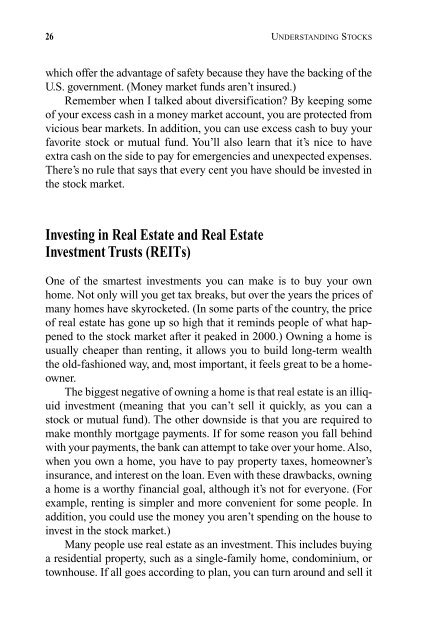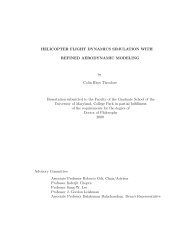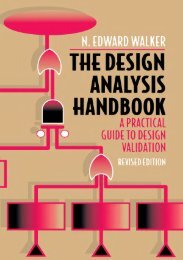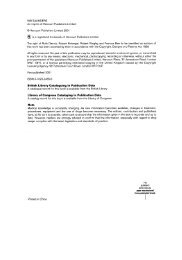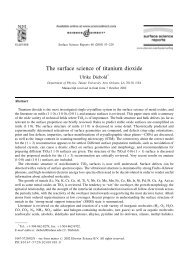Understanding Stocks
Understanding Stocks
Understanding Stocks
Create successful ePaper yourself
Turn your PDF publications into a flip-book with our unique Google optimized e-Paper software.
26 UNDERSTANDING STOCKS<br />
which offer the advantage of safety because they have the backing of the<br />
U.S. government. (Money market funds aren’t insured.)<br />
Remember when I talked about diversification? By keeping some<br />
of your excess cash in a money market account, you are protected from<br />
vicious bear markets. In addition, you can use excess cash to buy your<br />
favorite stock or mutual fund. You’ll also learn that it’s nice to have<br />
extra cash on the side to pay for emergencies and unexpected expenses.<br />
There’s no rule that says that every cent you have should be invested in<br />
the stock market.<br />
Investing in Real Estate and Real Estate<br />
Investment Trusts (REITs)<br />
One of the smartest investments you can make is to buy your own<br />
home. Not only will you get tax breaks, but over the years the prices of<br />
many homes have skyrocketed. (In some parts of the country, the price<br />
of real estate has gone up so high that it reminds people of what happened<br />
to the stock market after it peaked in 2000.) Owning a home is<br />
usually cheaper than renting, it allows you to build long-term wealth<br />
the old-fashioned way, and, most important, it feels great to be a homeowner.<br />
The biggest negative of owning a home is that real estate is an illiquid<br />
investment (meaning that you can’t sell it quickly, as you can a<br />
stock or mutual fund). The other downside is that you are required to<br />
make monthly mortgage payments. If for some reason you fall behind<br />
with your payments, the bank can attempt to take over your home. Also,<br />
when you own a home, you have to pay property taxes, homeowner’s<br />
insurance, and interest on the loan. Even with these drawbacks, owning<br />
a home is a worthy financial goal, although it’s not for everyone. (For<br />
example, renting is simpler and more convenient for some people. In<br />
addition, you could use the money you aren’t spending on the house to<br />
invest in the stock market.)<br />
Many people use real estate as an investment. This includes buying<br />
a residential property, such as a single-family home, condominium, or<br />
townhouse. If all goes according to plan, you can turn around and sell it


